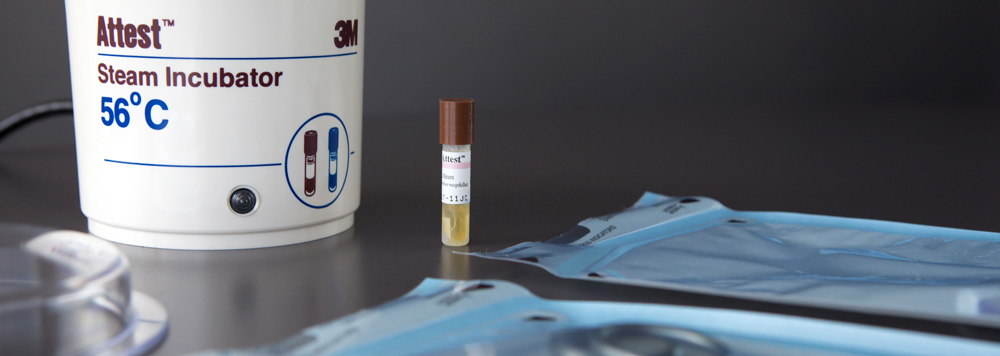Instrument Reprocessing

Selection of Instruments and Reprocessing Method
The instruments and equipment used in health care can transmit infections or diseases; therefore, they need to be properly sterilized or replaced between uses. This includes birth and suture instruments, specula, and newborn ventilation devices. Midwifery practices must choose to address their reprocessing needs in one of three ways: they may choose to reprocess instruments in clinic, outsource to a private service provider or hospital, or use disposable instruments.
Some practices prefer to maintain control over their reprocessing by doing it in-house. This allows midwives in the practice to use their own instruments and do their own reprocessing in a location to which they already travel (i.e. their clinic). However, reprocessing in-house also requires substantial investment of time and money, rigorous processes, and dedicated space to ensure compliance with current reprocessing standards (e.g. standards outlined by Public Health Ontario and the Canadian Standards Association). Practices that are not confident they can comply with reprocessing standards may choose to use disposable instruments, until they have either contracted the services of a reprocessing service provider or strengthened their own processes.
Other practices arrange for a local hospital or private reprocessing company (e.g. Steripro) to reprocess their instruments. This allows the practice to use reusable instruments without being primarily responsible for the reprocessing system, human resources or space. With some outsourcing arrangements, midwives continue using their individual instruments, while others use pre-existing birth and suture kits.
Practices that use disposable instruments generally utilize small kits of just the items that midwives will use, minimizing waste (e.g. 1-2 metal clamps and a pair of scissors).
In addition to the menu below, see the AOM webpages and resources on:
Options to Ensure Sterile Instruments: Considerations for MPGs
| Considerations | In House Reprocessing (e.g. admins, midwives, or hired expert) |
Outsourced Reprocessing (e.g. local hospital, private company) |
Disposables |
|---|---|---|---|
| Complexity | Highly complicated process requires strict adherence to high standards, staying current on changes to standards, a dedicated physical space and specialized staff training. | May require initial effort to establish a contract and process, but simple after set-up. | Easy |
| Risk Management |
MPG holds the responsibility for all aspects of reprocessing. Must consider and ensure appropriate space, training, equipment use and maintenance, documentation, schedules and processes. Reprocessing area may be subject to inspection by overseeing bodies (e.g. the CMO or local public health unit). |
Some MPG liability for the contract (e.g. certifications of contracted service), pre-cleaning, storage and transport. Little liability for sterilizer operation and confirmation (e.g. chemical, physical and biological indicators). Inspection/oversight of MPG is (e.g. the CMO or local public health unit) limited to issues within MPG’s control (e.g. pre-cleaning, storage, transport, contracts). |
Little liability assumed by MPG. MPG must ensure disposable kits are approved for sale in Canada with a Health Canada license for sale. MPG must ensure appropriate storage, use and transport of instruments. Inspection or oversight of MPG (e.g. by the CMO or local public health unit) limited to issues in MPG control (e.g. disposal, transport, storage). |
| Cost |
Large initial investment (e.g. space, training, autoclave with printer). Ongoing cost of supplies (e.g. biological and chemical indicators, pouches, distilled water, detergents) and compensation for those doing the reprocessing. |
Some initial set-up costs (e.g. administrative fees, purchase of standard sets) and ongoing cost per instrument or per kit. May be increased costs due to distance and time to send/pick up instruments for reprocessing. |
Cost per instrument kit, but generally the least expensive option to the MPG. |
| Space Needs | Dedicated area that meets PIDAC and CSA standards (e.g. one-way flow, clear separation of clean and contaminated spaces, doors, wipeable surfaces). Dedicated area for clean and dirty storage. | Dedicated area for pre-cleaning and possibly for cleaning if delay in pick-up (e.g. one-way flow), and clean and dirty storage. | Dedicated area for clean storage and dirty disposal. |
| Instruments Selection | Midwives use their own instruments. | Midwives may be able to use their own instruments, or have to share instruments among MPG practice members or other organizations. | Fewer instrument options to choose from. Some MPGs express concerns about the quality of disposable instruments, but others are satisfied. |
| Waste | Pouches, cleaning detergents and indicators, but not instruments. | Instruments and packaging, but not cleaning detergents or indicators. | |
| Transport | Requires system to maintain sterility during transport and for safe transport of dirty instruments. | Requires no transport of dirty instruments. | |
| Record Keeping and Recalls |
Requires records of autoclave maintenance, autoclave use log, malfunctions, recalls, training and tracking of instrument use back to reprocessed batches. In the event of a reprocessing lapse, must be able to track instruments from the autoclave load to the client that they were used with. |
Contract required between practice and outsourcing organization. Requires records of instrument use. In the event of a reprocessing lapse, must be able to track instruments from the autoclave load to the client that they were used with. |
None. Some IPAC experts recommend tracking instrument use in case of manufacturing failure. |
| Protocols |
Autoclave maintenance. Reprocessing procedures, including by whom, when, what process and what to do when loads fail. Instrument storage and transport. |
Instrument storage and transport (dirty and clean). | Protocol stating that disposable single use devices will not be re-used. |
| Other | N/A | Outsourced reprocessing may not be available in all communities, or may require driving longer distances to access. | All items used that require autoclaving between uses or as part of regular maintenance must be changed to disposable, including instruments, mask for nitrous oxide system for home birth, and newborn ventilation equipment (e.g. bag and mask). |
